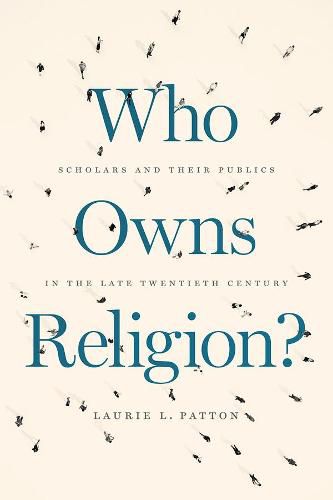Readings Newsletter
Become a Readings Member to make your shopping experience even easier.
Sign in or sign up for free!
You’re not far away from qualifying for FREE standard shipping within Australia
You’ve qualified for FREE standard shipping within Australia
The cart is loading…






Who Owns Religion? focuses on a period-the late 1980s through the 1990s-when scholars of religion were accused of scandalizing or denigrating the very communities they had imagined themselves honoring through their work. While controversies involving scholarly claims about religion are nothing new, this period saw an increase in vitriol that remains with us today. Authors of seemingly arcane studies on subjects like the origins of the idea of Mother Earth or the sexual dynamics of mysticism have been targets of hate mail and book-banning campaigns. As a result, scholars of religion have struggled to describe their own work to their various publics, and even to themselves.
Taking the reader through several compelling case studies, Patton identifies two trends of the ‘80s and '90s that fueled that rise: the growth of multicultural identity politics, which enabled a form of volatile public debate she terms eruptive public space, and the advent of the internet, which offered new ways for religious groups to read scholarship and respond publicly. These controversies, she shows, were also fundamentally about something new: the very rights of secular, Western scholarship to interpret religions at all.
Patton’s book holds out hope that scholars can find a space for their work between the university and the communities they study. Scholars of religion, she argues, have multiple masters and must move between them while writing histories and speaking about realities that not everyone may be interested in hearing.
$9.00 standard shipping within Australia
FREE standard shipping within Australia for orders over $100.00
Express & International shipping calculated at checkout
Who Owns Religion? focuses on a period-the late 1980s through the 1990s-when scholars of religion were accused of scandalizing or denigrating the very communities they had imagined themselves honoring through their work. While controversies involving scholarly claims about religion are nothing new, this period saw an increase in vitriol that remains with us today. Authors of seemingly arcane studies on subjects like the origins of the idea of Mother Earth or the sexual dynamics of mysticism have been targets of hate mail and book-banning campaigns. As a result, scholars of religion have struggled to describe their own work to their various publics, and even to themselves.
Taking the reader through several compelling case studies, Patton identifies two trends of the ‘80s and '90s that fueled that rise: the growth of multicultural identity politics, which enabled a form of volatile public debate she terms eruptive public space, and the advent of the internet, which offered new ways for religious groups to read scholarship and respond publicly. These controversies, she shows, were also fundamentally about something new: the very rights of secular, Western scholarship to interpret religions at all.
Patton’s book holds out hope that scholars can find a space for their work between the university and the communities they study. Scholars of religion, she argues, have multiple masters and must move between them while writing histories and speaking about realities that not everyone may be interested in hearing.